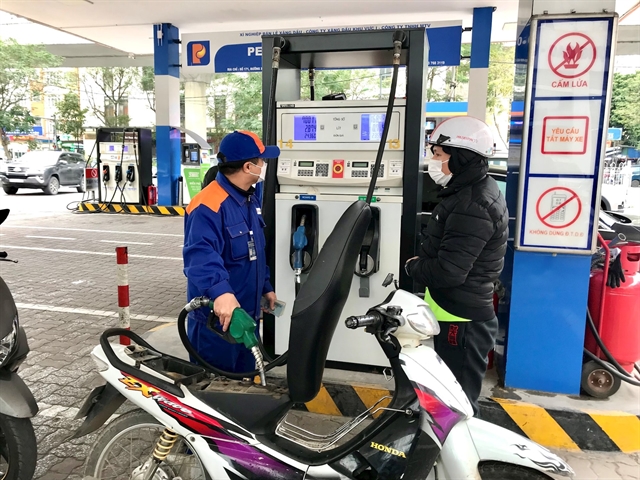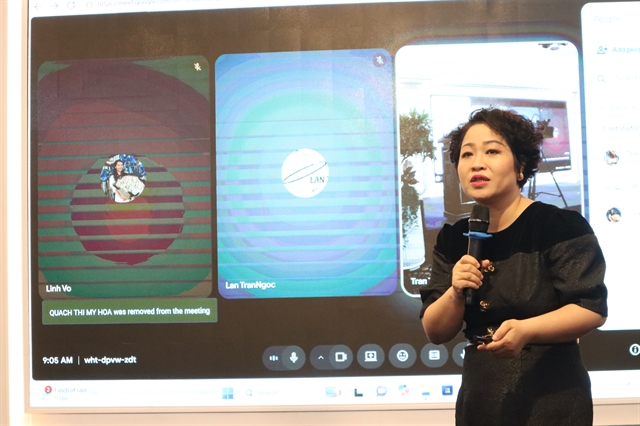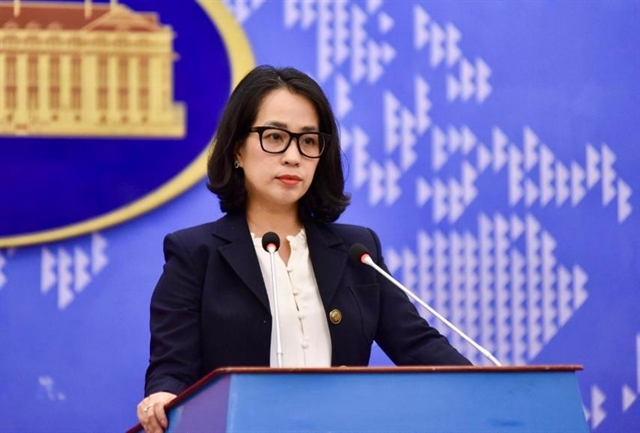 Economy
Economy
.jpg)
 |
| Bùi Hoàng Yến from the southern office of the Vietnam Trade Promotion Agency (Vietrade) speaks at the seminar. — Photo courtesy of ITPC |
HCM CITY — Việt Nam’s slew of free trade agreements offers its export companies a competitive advantage to but their utilisation rates remain modest, a seminar heard in HCM City on September 25.
Speaking at “Opportunities and Challenges for Vietnamese Enterprises in Implementing International Trade Agreements”, Bùi Hoàng Yến from the southern office of the Vietnam Trade Promotion Agency (Vietrade) said Việt Nam has signed 18 FTAs, 17 of which are already in force, giving access to more than 60 markets that account for nearly 90 per cent of global GDP.
According to data from the Ministry of Industry and Trade, export revenues from goods benefiting from preferential tariffs under FTAs recorded an average annual growth rate of 12.7 per cent.
New-generation FTAs have also made Việt Nam an attractive destination for global supply chain shifts.
However, only 30-40 per cent of exporting businesses take advantage of tariff preferences offered by FTAs, she said.
Several factors explain this underutilisation, including heavy dependence on major markets such as the US and China, low indigenisation rates with production still reliant on imported inputs and increasing pressure to comply with international standards in terms of the environment, labour, intellectual property, and fair trade.
To address these challenges, the Government has issued Resolution 93/NQ-CP and Directive 38/CT-TTg among others to promote more effective adoption of trade deals.
Vietrade is also organising training programmes, capacity building and trade missions to help businesses access priority markets, Yến said.
According to Hồ Thị Quyên, deputy director of the HCM City Investment and Trade Promotion Centre (ITPC), exporting to international markets has become increasingly demanding.
The bar keeps rising in terms of rules of origin, product standards, social responsibility, and sustainability, and this, coupled with fierce competition from foreign firms even within Việt Nam, means domestic companies must transform their business strategies.
She stressed that Vietnamese businesses must move beyond reliance on cheap labour and strengthen governance, upgrade standards and take advantage of FTAs.
Nguyễn Thị Trọng Nghĩa of the Agency of Foreign Trade provided a detailed analysis of RCEP rules of origin, particularly the “tariff differentials” mechanism, describing it as a complex but strategic tool for optimising tariff preferences.
 |
| The seminar attracts a large number of participants. — Photo courtesy of ITPC |
Đinh Thị Hương Giang, advisory services director at Grant Thornton Vietnam, underlined the importance of vendor due diligence (VDD) in global supply chains.
While FTAs create significant opportunities, they also require greater commitments to sustainability.
International corporations now prioritise legal and financial transparency, compliance, ESG commitments, risk control, and continuous improvement when selecting suppliers.
Vietnamese companies still face hurdles such as limited transparency, lack of standardised accounting systems, weak digitalisation, absence of international-standard KPIs, and inadequate financial risk management.
Giang proposed a three-phase roadmap to help businesses prepare.
She said in the first six months companies should focus on standardising financial reports, setting basic KPIs, introducing minimum internal controls, and ensuring transparent legal documentation.
In the next six to 18, they should deploy accounting or ERP software, implement financial risk controls and provide training for accounting teams.
In the third phase, in 18-36 months, they should conduct independent annual audits, integrate comprehensive risk management systems and prepare to comply with ESG requirements.
She stressed that VDD should not be seen as a burden but rather an opportunity to enhance governance and gain credibility with major international partners.
Lessons from successful businesses
Practical lessons were also shared by businesses that have succeeded in taking advantage of FTAs at the seminar.
Trần Thị Ngọc Lan, founder of ANTO Tea Co., Ltd. and deputy head of market planning at Chiến Thắng Garment JSC, highlighted the successes of her companies.
Chiến Thắng has achieved 90 per cent of its export revenues from the EU by proactively sourcing domestic raw materials, and ANTO’s Hibiso tea brand has successfully entered South Korea and the Netherlands with tariff exemptions by complying with requirements such as GMP-certified production and SGS inspection, she said.
To succeed in exports, businesses should adopt product packaging and labelling that dovetail with import market standards and obtain C/O certificates to enjoy tariff preferences, she said.
To meet the increasingly stringent sustainability demands, firms should also adopt recyclable materials, she said.
Partnering with international inspection agencies such as SGS and Intertek could further enhance credibility and assure product quality.
Businesses could also harness technologies such as blockchain for traceability, ensuring supply chain transparency, and participation in international trade fairs to expand networks.
She added that companies need to regularly update themselves on regulations in import markets and tariff schedules under FTAs and monitor market signals to make timely strategic decisions.
The seminar was organised by ITPC in collaboration with Vietrade and the Agency of Foreign Trade. — VNS
.jpg)



